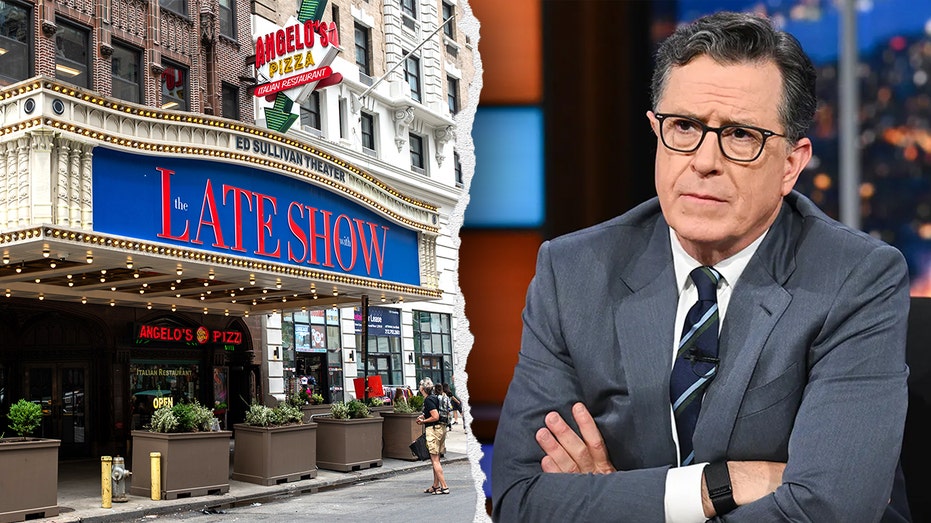A Historic Moment in Late-Night TV: Rivals Unite on Colbert’s Stage After Shocking Cancellatione
In a historic display of solidarity, Stephen Colbert’s late-night rivals united on his stage following the shocking cancellation of The Late Show, revealing a tangled web of corporate and political pressures that highlights the ongoing struggle for free speech in comedy and leaves fans wondering about the future of late-night television.
In an unprecedented turn of events, late-night television witnessed a powerful display of solidarity as Stephen Colbert’s rivals gathered on his stage following the shocking cancellation of The Late Show by CBS on May 1, 2025.
This unexpected gathering not only highlighted the camaraderie among late-night hosts but also raised critical questions about the underlying reasons for Colbert’s abrupt exit and its implications for the future of comedy and free speech.
As the news of Colbert’s cancellation spread, fans and industry insiders alike were left in disbelief. The decision came as a surprise, given Colbert’s popularity and his significant impact on political satire over the years.
With a career spanning over a decade in late-night television, Colbert had become a prominent voice, especially during the tumultuous political landscape of the past few years.
His sharp wit and willingness to tackle controversial topics earned him a loyal fan base, making the cancellation all the more shocking.

On the night following the cancellation, Colbert’s competitors—Jimmy Fallon, Jimmy Kimmel, and Trevor Noah—made an unscripted appearance on The Late Show set, creating a moment that resonated deeply with audiences.
As they took the stage, the atmosphere was charged with emotion. Fallon opened the segment, saying, “We’re here to support our friend Stephen.
This isn’t just about one show; it’s about all of us in late-night television standing together.” Kimmel added, “In times like these, we need to remember that our voices matter, and we’re stronger united.”
The camaraderie displayed by these late-night icons sent shockwaves through the entertainment industry. It was a rare moment of unity among fierce competitors, reminding viewers that, despite their rivalries, there is a shared commitment to the values of free expression and comedy.
The hosts took turns sharing their favorite moments from Colbert’s show, reminiscing about the laughter and insights he brought to their audiences.
Trevor Noah, visibly moved, remarked, “Stephen has always pushed the envelope and challenged us to think critically. We owe so much of our success to his influence.”
However, the backdrop of this heartfelt tribute was shrouded in a complex narrative involving corporate dealings and political pressure that led to Colbert’s cancellation.
Insiders suggest that CBS’s decision was influenced by a desire to shift its programming strategy, potentially in response to shifting viewer demographics and the increasing competition from streaming platforms.
Rumors have circulated that political pressures also played a role, as Colbert’s sharp commentary on current events may have raised eyebrows within corporate circles.
As the hosts continued to express their support for Colbert, the conversation inevitably turned to the broader implications of this cancellation.
